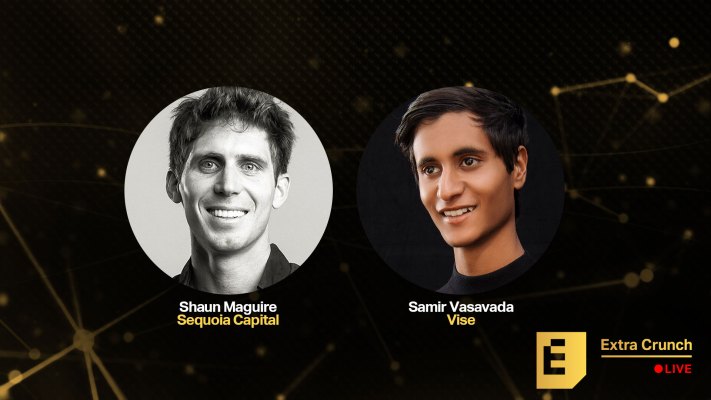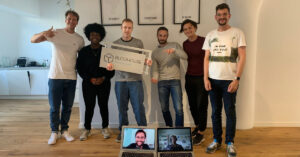In just a few short years, Vise has gone from launching on the Disrupt Battlefield stage to unicorn. Co-founders Samir Vasavada and Runik Mehrotra met Sequoia’s Shaun Maguire at an afterparty at the event, and Maguire ended up leading a seed and Series A round while Sequoia led the Series B. Last week, Vise raised its Series C of $65 million and was officially valued at $1 billion post-money.
A good pitch deck is short and simple, and covers the key points in less than 12 words a slide.
We sat down with Vasavada and Maguire to talk about the early fundraising process for Vise, specifically the seed round, and get a look at the startup’s first pitch deck. We discussed what Vasavada has learned about delivering a good fundraising pitch, and what stood out about the pitch and the product for Maguire.
Simplicity is key
Vasavada says he’s made dozens of pitch decks since starting Vise and that this early deck was not his best because it was trying to do too much.
“A good pitch deck is short and simple, and covers the key points in less than 12 words a slide,” said Vasavada, adding that many founders think they need to show investors every part of their business.
“The deck has to show that you’re solving an important problem, that you’ve got the path to an important solution, that there is a big market opportunity, and that your team is positioned to execute,” he said. “Those are the only four things that matter. Everything else can be discussed in the Q&A.”
The goal of a pitch meeting is not to get the “yes” instantly, and satisfy every curiosity, but rather to give the investor something to think about and a reason to want another conversation.
Vasavada explained to the audience that this early seed deck certainly went into too much detail and was too text-heavy. (You can check out the full deck below.)
Why will this product be successful right now?
Beyond the problem, solution, market and team, there is an additional X factor that makes a difference in pitching for fundraising.
Timing can make or break a startup. Incredible ideas, ones that have gone on to be some of the biggest businesses in the world, have fizzled out and died for being too early.









